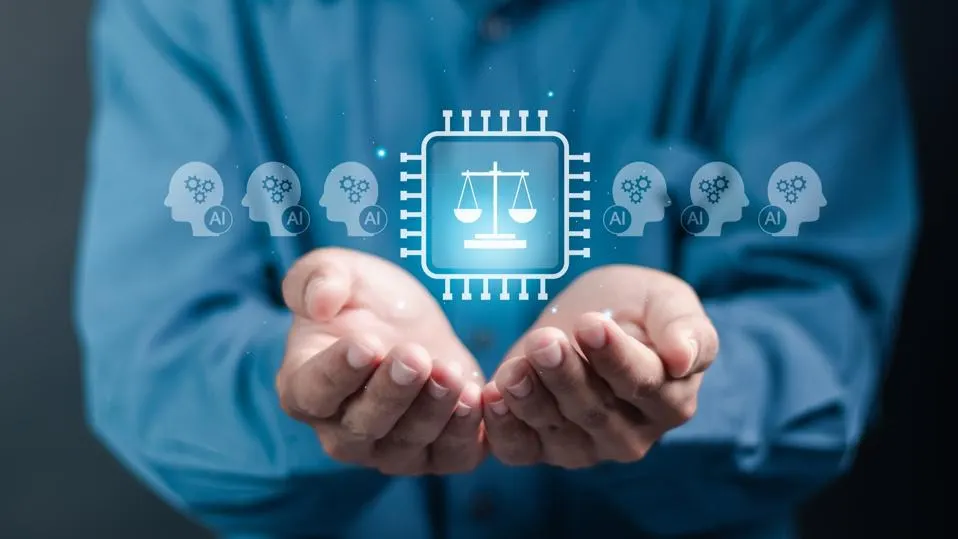The 7 Biggest Business Challenges Every Company Is Facing In 2023
23 November 2022
In this article, we look at the seven biggest challenges businesses will be facing in 2023. We discuss challenges in relation to the economy, supply chains, consumer expectations, digital transformation, cyber security, sustainability, and finding the right talent.

As a futurist specializing in the intersection of business and technology, it’s my job to look ahead and advise companies on how they can prepare for a rapidly changing world.
Here are the seven greatest challenges every company should be ready for in 2023:
1. Inflation and Economic Downturn
The headlines are already filled with talk of skyrocketing inflation, and that trend will likely continue in 2023. Many economies will stagnate or shrink, and businesses need to prepare for that reality.
The Managing Director of the International Monetary Fund (IMF), Kristalina Georgieva, reported that the organization had downgraded its forecast for 2.9 percent global growth in 2023. The IMF cited rising risks of financial instability and recession.
Companies can face inflation by establishing end-to-end, actionable visibility of spending by business process, function, cost category, and business unit, as well as reducing spending.
2. Supply Chain Security
Supply chain security is another key issue. Challenges began with COVID-related backlogs and have been made worse by Russia's invasion of Ukraine and labor shortages due to the Great Resignation. This has made parts and products harder to obtain, as well as pushed prices up (e.g., energy, grains, computer chips, oil, and so on).
According to a report by Accenture, supply chain issues could result in a potential €920 billion cumulative loss to the gross domestic product (GDP) across the Eurozone by 2023.
Companies should resist the urge to over-order to compensate for backlogs, which could worsen the situation. Instead, focus on long-term recovery and restructure your needs to prevent similar shortages in the future.
3. Increasing Customer Expectations
Customers are demanding more immersive customer experiences in the real world as well as in the metaverse.
Customers entering brick-and-mortar stores aren’t just looking to buy products — they want memorable in-store experiences. If your company has physical shops, consider adding more immersive experiences.
Online retailers should consider adding extended reality (XR) experiences like virtual dressing rooms that allow customers to “try on” clothing, accessories, and makeup without leaving their homes.
No matter how you engage with consumers (online, offline, or a mix of both), ask yourself, “How can we add even more value for our customers by turning this interaction into an experience?”
4. Accelerated Digital Transformation
Artificial intelligence (AI) is already starting to augment all of our businesses, and that trend will continue to accelerate next year. At the same time, other technologies like 5G, blockchain, the cloud, and the Internet of Things (IoT) are building and speeding up AI, and all of them are enhancing each other.
This is rapidly creating a world of ever-faster technological developments. In response, every business must think of itself as a tech business. Companies need to re-design their processes and ensure their people have the skills needed for a world where we increasingly collaborate with and work alongside capable and intelligent machines.
5. The War for Talent Will Intensify
Speaking of workers — companies in 2023 must be ready to cope with a continued talent shock. We’ve been hearing about the “War for Talent” for years, but now it feels like the war is deepening.
Companies across industries are facing massive gaps for vital future skills, and they will need to re-skill or upskill massive sections of their workforce to get ready for the 4th industrial revolution. Companies can and should take on the onus of training talent by taking steps like hiring people straight out of school, employing low-code or no-code software for critical needs, and instilling cultures of continuous learning.
On top of that, the pandemic has made many people reevaluate their jobs, leading to mass resignations in many sectors.
To attract top talent, employers must offer a working environment that is appropriate for the new world of work, including job flexibility, authentic leadership, diversity, etc.
6. Data and Device Security
Cyberattacks are on the rise, and ransomware and phishing scams are now a common occurrence. As businesses become more digital, they accumulate more data, which becomes highly attractive to cybercriminals that intend to steal it and hold organizations hostage to monetary demands.
Mobile and IoT devices are not immune to cybersecurity threats. Additionally, quantum computing is now emerging, which could render existing security systems obsolete.
Companies can take steps to protect themselves by taking proactive measures like evaluating their data backup and recovery processes, conducting penetration testing and vulnerability scanning, and taking proactive steps to protect sensitive data and prevent cyberattacks.
7. Sustainability
Climate change is the world’s largest business challenge, and consumers are demanding transparency in sustainability practices as well as more eco-friendly products and services.
Companies can respond by viewing the whole picture of their business practices and auditing their full supply chains. They should also consider switching to renewable energy, moving to more sustainable packaging, and allowing people to work remotely when appropriate (which can help lower emissions).
Becoming demonstrably more sustainable can not only satisfy consumers’ needs but also help you spot efficiencies and savings that can have a positive effect on your bottom line.
To stay on top of the latest on new and emerging business and tech trends, make sure to subscribe to my newsletter, follow me on Twitter, LinkedIn, and YouTube, and check out my books ‘Tech Trends in Practice’ and ‘Business Trends in Practice, which just won the 2022 Business Book of the Year award.
Related Articles
Will AI Solve The World’s Inequality Problem – Or Make It Worse?
We are standing on the cusp of a new technological revolution. AI is increasingly permeating every aspect of our lives, with intelligent machines transforming the way we live and work.[...]
How You Become Irreplaceable In The Age Of AI
In a world where artificial intelligence is rapidly advancing, many of us are left wondering: Will AI take our jobs?[...]
Why Apple Intelligence Sets A New Gold Standard For AI Privacy
In the rapidly evolving world of artificial intelligence, privacy concerns have become a hot-button issue.[...]
Can Your Device Run Apple Intelligence? What You Need To Know
Apple's announcement of Apple Intelligence has sent waves of excitement through the tech world.[...]
10 Amazing Things You Can Do With Apple Intelligence On Your IPhone
Apple Intelligence is poised to revolutionize the iPhone experience, offering a suite of AI-powered tools that promise to make your digital life easier, more productive, and more creative.[...]
Agentic AI: The Next Big Breakthrough That’s Transforming Business And Technology
The world of artificial intelligence is evolving at a breakneck pace, and just when you thought you'd wrapped your head around generative AI, along comes another game-changing concept: agentic AI.[...]
Sign up to Stay in Touch!
Bernard Marr is a world-renowned futurist, influencer and thought leader in the fields of business and technology, with a passion for using technology for the good of humanity.
He is a best-selling author of over 20 books, writes a regular column for Forbes and advises and coaches many of the world’s best-known organisations.
He has a combined following of 4 million people across his social media channels and newsletters and was ranked by LinkedIn as one of the top 5 business influencers in the world.
Bernard’s latest book is ‘Generative AI in Practice’.










Social Media